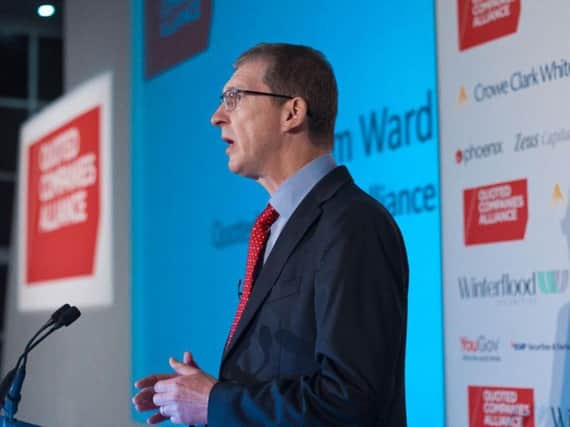Optimism in small firms is flagging


It’s about time politicians took note of what they are thinking and how they see the world ahead. After all, they are the engines of real growth for the UK economy.
Since 2011 the QCA and YouGov have polled a representative sample of these companies in our Small & Mid-Cap Sentiment Index. The latest edition of the Index released last month
Advertisement
Hide AdAdvertisement
Hide Adreveals that small and mid-cap companies remain positive about their own business prospects, but that this optimism is at its lowest point since 2012. So they are becoming
pessimistically optimistic.
Most of them are expecting to increase their workforce over the coming year, but nearly a fifth think they may have to shed jobs, reducing employment. The number of companies
thinking like this has nearly doubled in six months. If one in five companies followed this trend across the whole UK economy and started to reduce their workforce then we would be
experiencing serious economic problems.
However, despite this sentiment on jobs, these companies are predicting that they will have sales growth on average of 17 per cent over the next year. This is of course positive, but it is
slightly down from 19.2 per cent a year earlier.
Advertisement
Hide AdAdvertisement
Hide AdPulled together it seems that the optimism of the UK’s small and mid-caps about their own prospects, whilst still net positive, is flagging. This is a cause for concern as looking at our
findings over the last eight years we have seen this confidence to be a consistent part of the DNA of small and mid-cap quoted companies. These companies are confident in their
prospects of riding out, and even prospering in, difficult economic and political circumstances. Let’s hope that the results pick up later in the year when we ask the same question again.
Our survey also shows that the outlook of these companies for the UK economy has declined steadily since peaking in 2014.
Advertisement
Hide AdAdvertisement
Hide AdWhilst there are wider global trends affecting many of these companies, the ongoing political uncertainty in the UK is continuing to contribute to the outlook on the economy and
increasing pessimism in the companies’ own prospects. Naturally, those wedded to the UK economy are likely to be the most fearful, given the current political situation.
I don’t think that we will see a quick resolution to our economic situation. Even with a withdrawal agreement, our terms of trade will need to be negotiated over many years. So
maintaining the confidence of these growth companies should be the prime concern of the new Chancellor and business minster, whoever they may be.
Advertisement
Hide AdAdvertisement
Hide AdOver 3 million people’s (and their dependents’) livelihoods are linked to the welfare of these companies. The Exchequer’s coffers attract £26bn in taxes from them. So we trust that
we can have a positive resolution to the political uncertainty and that what is achieved works for UK business and society at large.
We are blessed with great companies that are eager to grow, but are survey indicates that they are being hampered by the political uncertainty that has been going on for too long now.